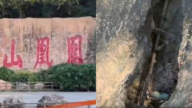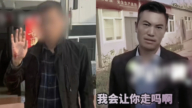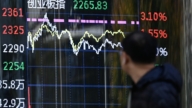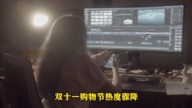【新唐人2011年8月3日訊】溫州動車追尾事故後,在造成事故信號系統沒有解決的情況下,「廣鐵集團」仍堅持將在這個月內,開通廣州南至深圳北段的「廣深高鐵」路段。而在出事路線甬溫線自恢復通車後,平均上座率就高達117.6%。學者指出:當局做法不負責任,反映了對生命的漠視。也有人認為,鐵道部是腐敗的利益集團,應該改制。
就在溫州動車事故發生不到10天,還有遇難者沒有火化,入土,鐵道部已經在網站上發表:為「確保廣深港高鐵“高標準、高品質的服務大運會”」,「廣鐵集團把深圳本月大學生運動會期間的鐵路運輸安全“作為政治任務來抓”。
「廣深港高鐵」的信號系統CTCS系統,與溫州動車事故所在的甬溫線使用同一產品,都是由「中國鐵路通信信號公司」旗下的「北京全路通信信號研究設計院」設計生產。鐵道部日前公開表示,已經從7月27號凌晨開始檢查這一系統,「廣深港高鐵」也在檢查之列。
「廣深高鐵」堅持於本月開通的消息,引來不少質疑聲音。
資深媒體人高瑜認為,高鐵設計本身存在技術缺陷,加上指揮系統不利,導致甬溫線的事故。這種有問題的信號系統沒有解決之前,仍舊冒險投入運行,這種視而不見的做法,不是一個負責任的政府所為。
高瑜: “事件沒有完全調查清楚,恢復了通車,已經引起人們的憤怒了。現在為了服務一個大學生運動會,同樣的研製的、同樣的系統肯定令人擔憂。” “ 既然這樣,我認為,投入深運會,如果沒有出事故也是一種僥倖。”
數年前,「日本寶塚線列車」發生重大出軌事故,僅鐵軌檢查一項就花了26天,至於恢復通車,則是在全部調查完成之後的55天。
學者吳祚來認為,鐵道部本身是壟斷的利益集團,內部問題多多,而且對生命漠視,應該改變它的體制。
吳祚來:“鐵道部有很多問題,因為它是壟斷,而且官營不是官營,民營不是民營,官民不分,所以應該改變鐵道部,使它變成一個企業, 不應該使它變成一個由國家統包統攬的腐敗利益集團。”
而對於溫州動車追尾意外,中共中宣部也向媒體連下三道禁令,要求只能報導正面和官方消息。
高瑜對此認為政府能如此一手遮天,從來不考慮人民群眾的意見,主要是人民沒有選票。高瑜認為,全國「高鐵大躍進」,背後不僅是對生命的漠視。
高瑜: “中國模式,現在是權貴需要的,是政府需要的,是官僚資產階級所需要的,而不是人民所需要的”
知名媒體人、《中國保險報》評論主編童大煥對此表示,不應該讓老百姓拿生命來磨合這種系統。
童大煥:“他們之所以仍冒險在使用,我覺得如果按照非常嚴格的檢測的話,所有動車都得停下來,這是他們所不能承受的。”
據報導,在鐵道部的大力推進下,甬溫線在事故第三天(7月25日)就恢復了通車。通車後,前面兩天運送旅客156253人,平均上座率117.6%,7月26號共開行動車65列,上座率138.4%。
對此,吳祚來認為,大家冒險坐高速的動車,是因為動車受到特殊的安排,而且時間上,其他火車很慢,動車很快,客觀上造成了動車的擁擠。但他說,當局在事故原因沒有徹底查清楚的時候,相關產品應該停止使用。
新唐人記者秦雪、宋風、蕭宇採訪報導。
China’s High-Speed Rails Praised
Before the rail signal system issue behind the
Wenzhou rail accident has been resolved,
Guangzhou Railway Group already announced the
opening of the section from Guangzhou to Shenzhen.
The Yong-Wen section, where the accident took place,
has had a 117.6% ridership after being re-opened.
Scholars point out that this is the government’s
indifference regarding human lives.
Some point out that the Ministry of Railways
is a corrupt vested interest group and should be reformed.
Not even 10 days after the Wenzhou train accident,
before some victims were buried,
the Ministry of Railways announced on its website,
to “ensure the high-standard and high-quality service
of the Guangzhou-Shenzhen section of the high-speed rail.”
“Guangzhou Railway Group will treat the rail’s safety during
Shenzhen’s 2011 Universiade as a political mission.”
Guangzhou-Shenzhen-Hong Kong railroad’s signal system,
CTCS, is the same system as the Wenzhou line.
Both were developed by Beijing National Railway Research
& Design Institute of Signal & Communication,
subsidiary of China Railway Signal & Communication Corp.
Ministry of Railways announced that since July 27,
they had been inspecting the signal system.
The Guang-Shen-Hong railway is also under inspection.
The announcement of the opening of Guang-Shen section
has drawn many doubtful concerns.
Veteran journalist Gao Yu believes the flaws in the
high-speed rail technologies,
combined with an inadequate signal system,
created the recent rear-end accident.
Running trains before fixing the signal system
while ignoring the glaring issues,
is not what a responsible government would do.
Gao Yu, “Running the trains before a full investigation
had already angered many people.
Now, using the same system to service the 2011 Universiade,
no doubt that would lead to some concerns.”
“It would be considered lucky if nothing happens
during the Universiade.”
A few years ago, after the Japanese Amagasaki rail crash,
Japan spent 26 days on just the rail track inspection.
55 days after the full investigation was conducted
the traffic was resumed.
Scholar Wu Zuolai believes that the Ministry of Railways
is a monopoly and interest group.
It has many internal issues, and neglects human lives.
It needs to be reformed.
Wu Zuolai, “There are many issues in the Railway Ministry,
because it’s a monopoly.
It’s a fuzzy mix of government and private enterprises.
It should be reformed into a corporation, instead of being
turned into a corrupt interest group under the government.
Regarding the Wenzhou crash, the Propaganda Department
issued threes bans to all media,
ordering them to only report positive news
and government news releases.
Gao Yu believes the reason the government can cover things
up and disregard people’s interest
is the fact that people do not have the right to vote.
Also, the “Great Leap Forward of Railways” is more than
a disregard for human life.
Gao Yu, “The Chinese model is the need of the elite,
the party and the bureaucratic bourgeoisie.
It is not needed by the people.”
Tong Dahuan, renowned journalist and review editor of
China Insurance News, says that
we shouldn’t grind human lives into the system.
Tong Dahuan, “the reason they are still running the train is,
in order to fully inspect the system with a strict standard,
they would have to shut down all the empty trains.
They aren’t willing to do this.”
It was reported that under the vigorous pushing of
the Ministry of Railways,
the Yong-Wen line resumed traffic on July 25,
three days after the accident.
The number of passengers on the first two days
were 156,253, with a seat occupancy ratio of 117.6%
65 trains were running on July 26,
and the seat occupancy ratio was 138.4%.
Wu Zuolai believes the reason people willing to ride the trains
is the special treatment received by high-speed trains.
Comparing to high-speed trains, regular trains are slower,
so there are reasons for the crowded high-speed trains.
But he believes that they should stop using the products
involved in the accident until a full investigation is conducted.
NTD reporters Qin Xue, Song Feng and Xiao Yu




























